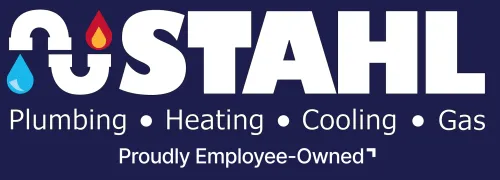Water is essential daily, but not all water is created equal. Depending on where you live, the water hardness by zip code can vary significantly. If you are dealing with hard water, you may be well aware of its impact on various aspects of your home, including plumbing. In this article, we'll explore hard water, its effects on plumbing, and practical solutions such as hard water stain remover and dealing with hard water scale.
Understanding Hard Water
Hard water is a term used to describe water with a high concentration of dissolved minerals, primarily calcium and magnesium. These minerals are naturally present in the earth and can be picked up by water as it moves through the ground. The degree of water hardness varies from one location to another, leading to the concept of water hardness by zip code. Some areas have very hard water, while others enjoy relatively soft water.
Effects of Hard Water on Plumbing
- Limescale Buildup: Limescale buildup is one of the most common issues associated with hard water. As hard water flows through your plumbing fixtures and appliances, it sometimes leaves behind mineral deposits that accumulate over time. This limescale buildup can clog pipes and reduce water flow, leading to decreased water pressure and inefficient plumbing systems.
- Clogged Faucets and Showerheads: You may notice reduced water flow from faucets and showerheads due to limescale buildup. The fixtures may become completely clogged in severe cases, requiring frequent cleaning and maintenance.
- Water Heater Efficiency: Water heaters are particularly vulnerable to hard water. Limescale can form on the heating elements, insulating them from the water they are meant to heat. This reduces the efficiency of your water heater, increasing energy consumption and utility bills.
- Appliance Damage: Dishwashers and washing machines can also suffer from the effects of hard water. Limescale buildup can damage components and reduce the lifespan of these appliances. It can also leave spots and streaks on your dishes and laundry.
- Clogged Pipes: Limescale can accumulate within your plumbing pipes, leading to clogs and potential blockages. This can result in reduced water flow and may necessitate costly plumbing repairs.
Dealing with Hard Water Issues
- Water Softeners: Installing a water softener is one of the most effective ways to combat hard water problems. These systems lessen water hardness by using ion exchange to swap out calcium and magnesium ions for sodium or potassium ions.
- Water Conditioners: Water conditioners, also known as descalers, don't remove minerals from the water but prevent them from forming limescale buildup. They are a less common but eco-friendly alternative to water softeners.
- Regular Maintenance: Regular maintenance and cleaning of plumbing fixtures, such as faucets and showerheads, can help manage limescale buildup. A hard water stain remover can effectively remove stubborn stains and scale.
- Scale Inhibitors: Scale inhibitors can be installed on plumbing fixtures to prevent limescale buildup. They work by releasing small amounts of polyphosphates into the water, which bind to minerals and inhibit scale formation.
- Appliance Maintenance: To extend the life of your appliances, consider periodically running cleaning solutions through dishwashers and washing machines. This helps remove mineral deposits and prevents damage.
Benefits of Addressing Hard Water Issues
- Improved Plumbing Efficiency: Dealing with hard water issues can significantly improve the efficiency and longevity of your plumbing system. You'll experience fewer clogs, better water pressure, and reduced plumbing maintenance.
- Cost Savings: By addressing hard water problems, you can reduce your energy bills. Water heaters, in particular, operate more efficiently when limescale is kept at bay.
- Appliance Longevity: Protecting your appliances from the effects of hard water can extend their lifespan, saving you money on costly repairs or replacements.
- Better Water Quality: Softened or conditioned water benefits your plumbing, resulting in softer skin, shinier hair, and cleaner dishes and laundry.
The water hardness by zip code can vary significantly, and if you're in an area with hard water, it's essential to be aware of its impact on your plumbing. Limescale buildup can cause problems, from clogged faucets and showerheads to reduced water heater efficiency. Fortunately, solutions include water softeners, conditioners, and scale inhibitors.
Regular maintenance, cleaning, and a hard water stain remover can help keep your plumbing system running smoothly. By addressing hard water issues, you not only improve the efficiency of your plumbing but also enjoy cost savings and better water quality throughout your home. If you need help, contact us today.

